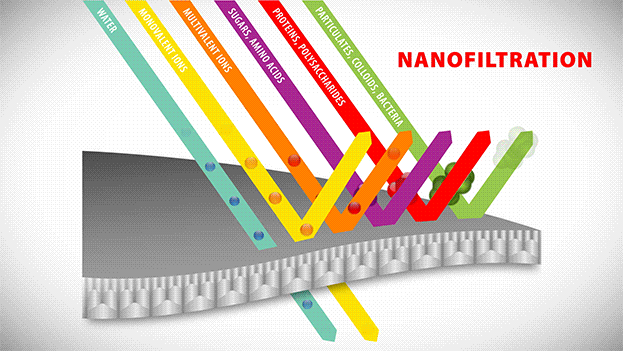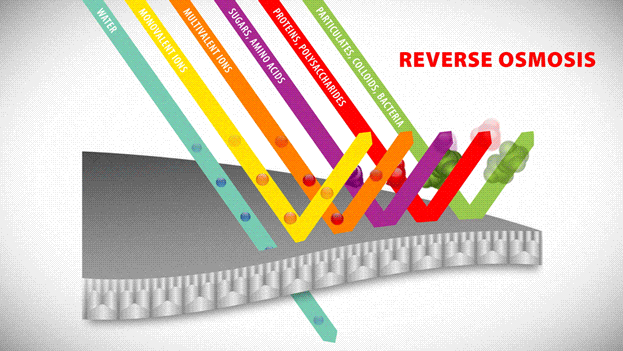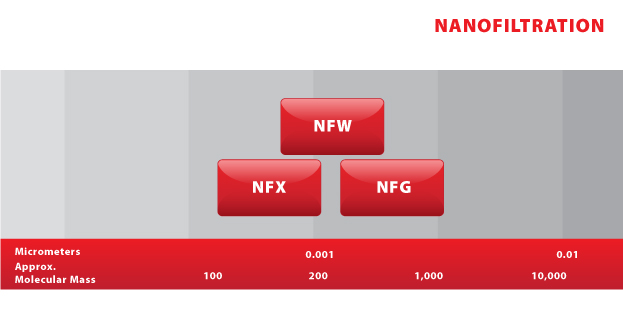Nanofiltration Filters vs. Reverse Osmosis Filters
Nanofiltration is a separation process characterized by organic, thin-film composite membranes with a pore size range of 0.1 to 10nm. Unlike RO membranes, which reject all solutes, NF membranes can operate at lower pressures and offer selective solute rejection based on both size and charge.


With a pore size between 0.1-10nm, Synder Filtration’s nanofiltration filters will allow water and some salts to pass through the membrane while retaining multivalent ions, low molecular weight molecules, sugars, proteins, and other organic compounds. After years of research and development, Synder’s NFX, NFW, and NFG nanofiltration membrane product line have been proven to offer great resistance to fouling, a high degree of selectivity, and the physical durability needed for application in a wide range of industrial separation processes.

Here are some common applications of Synder’s NF membrane technology:
- Removal of natural organic matter in water and wastewater treatment
- Reduction of hardness in water purification
- Sulfate removal from seawater and chemical processes
- Lactose and whey demineralization in dairy processing
- Desalting of process streams in various industries
Synder offers a comprehensive application development program and even nanofiltration membrane development may be available upon request. Please contact us for more information. You will receive a personal response from one of our experienced team members within 24 hours.
